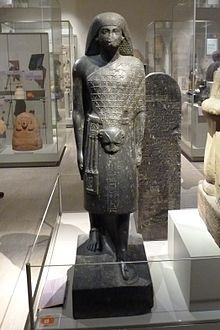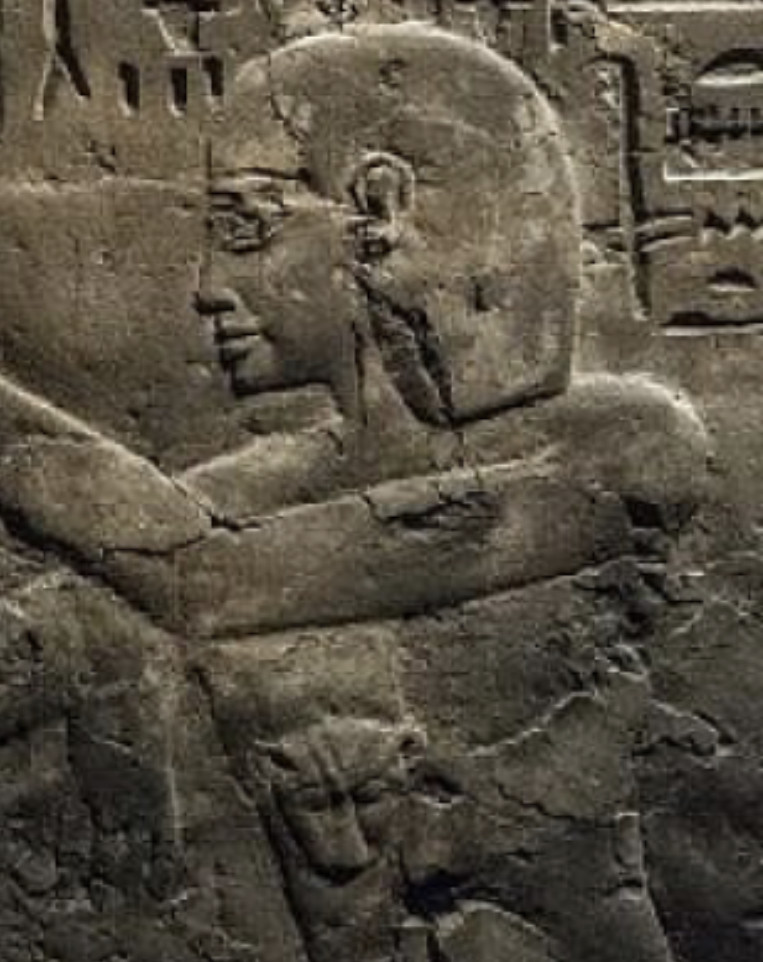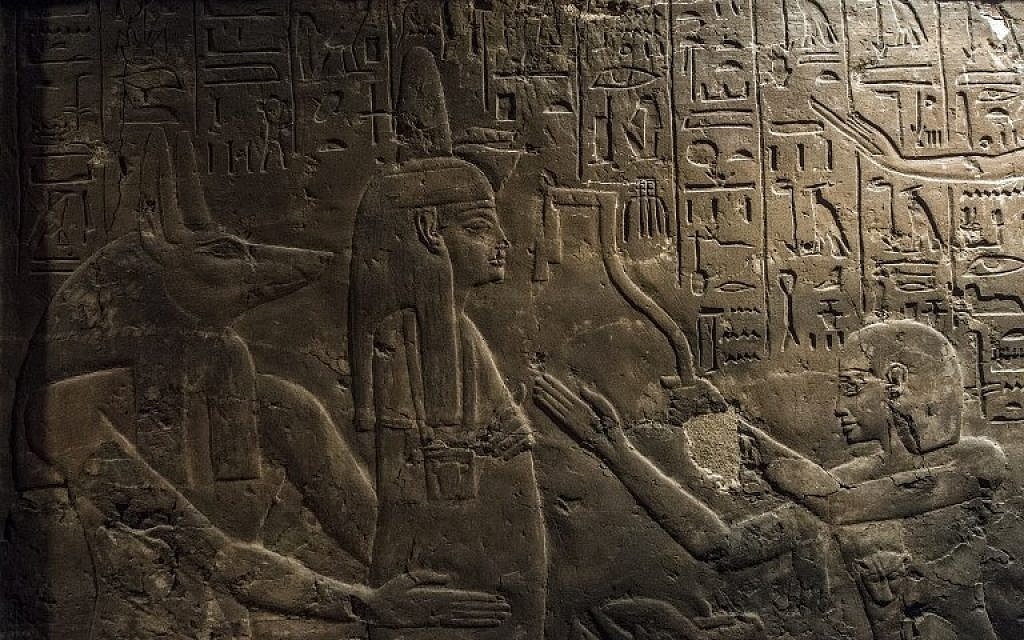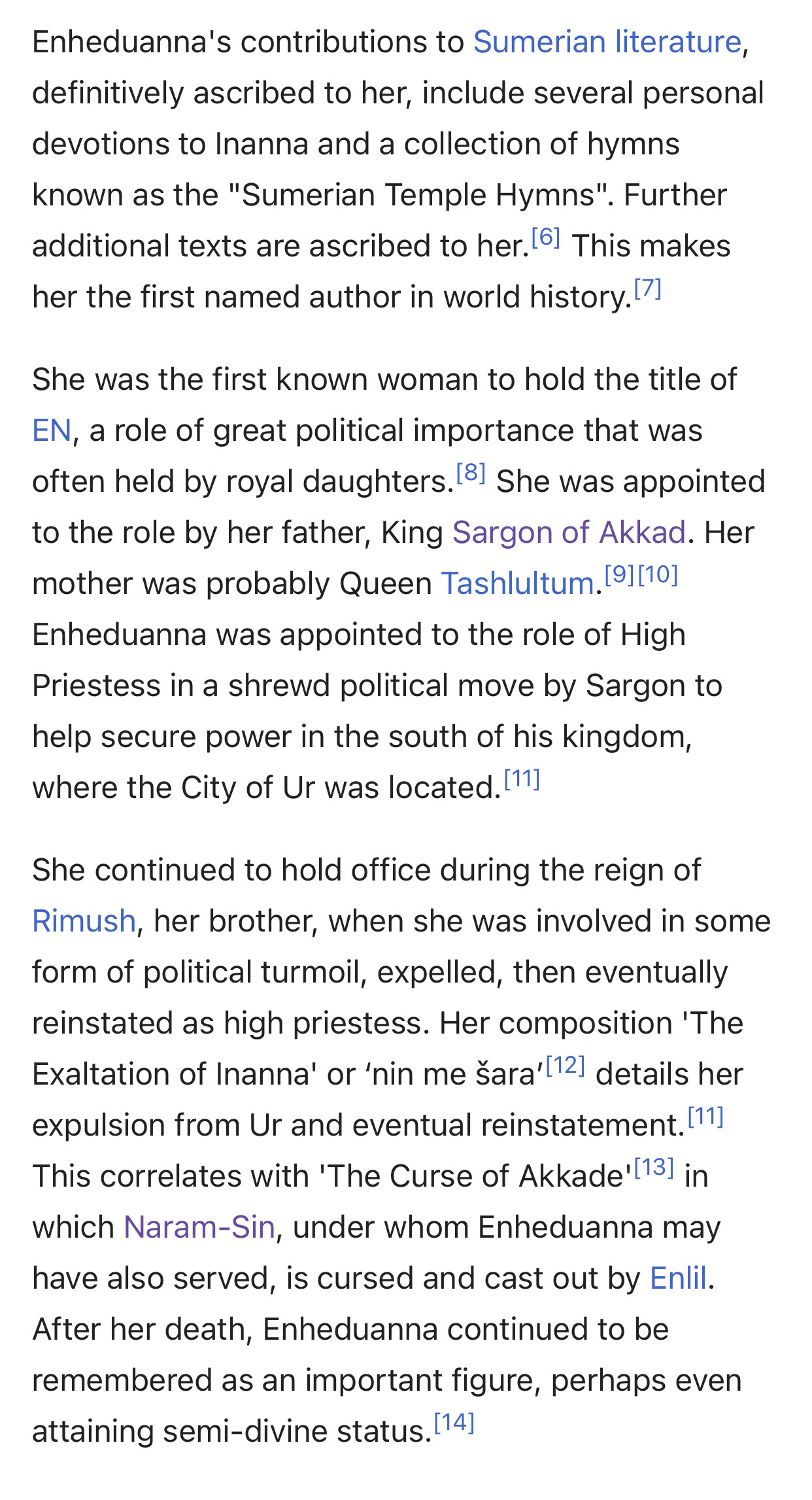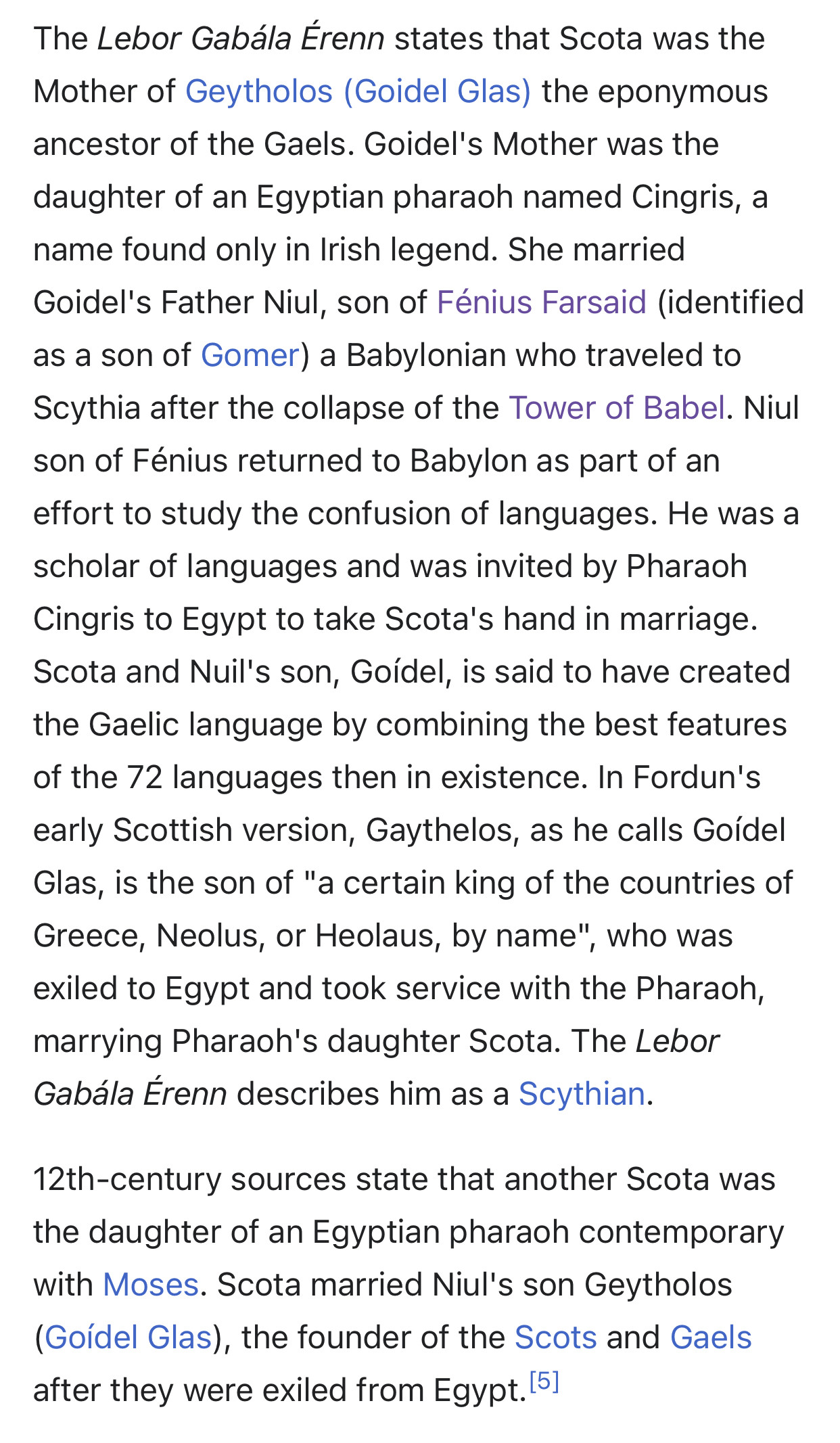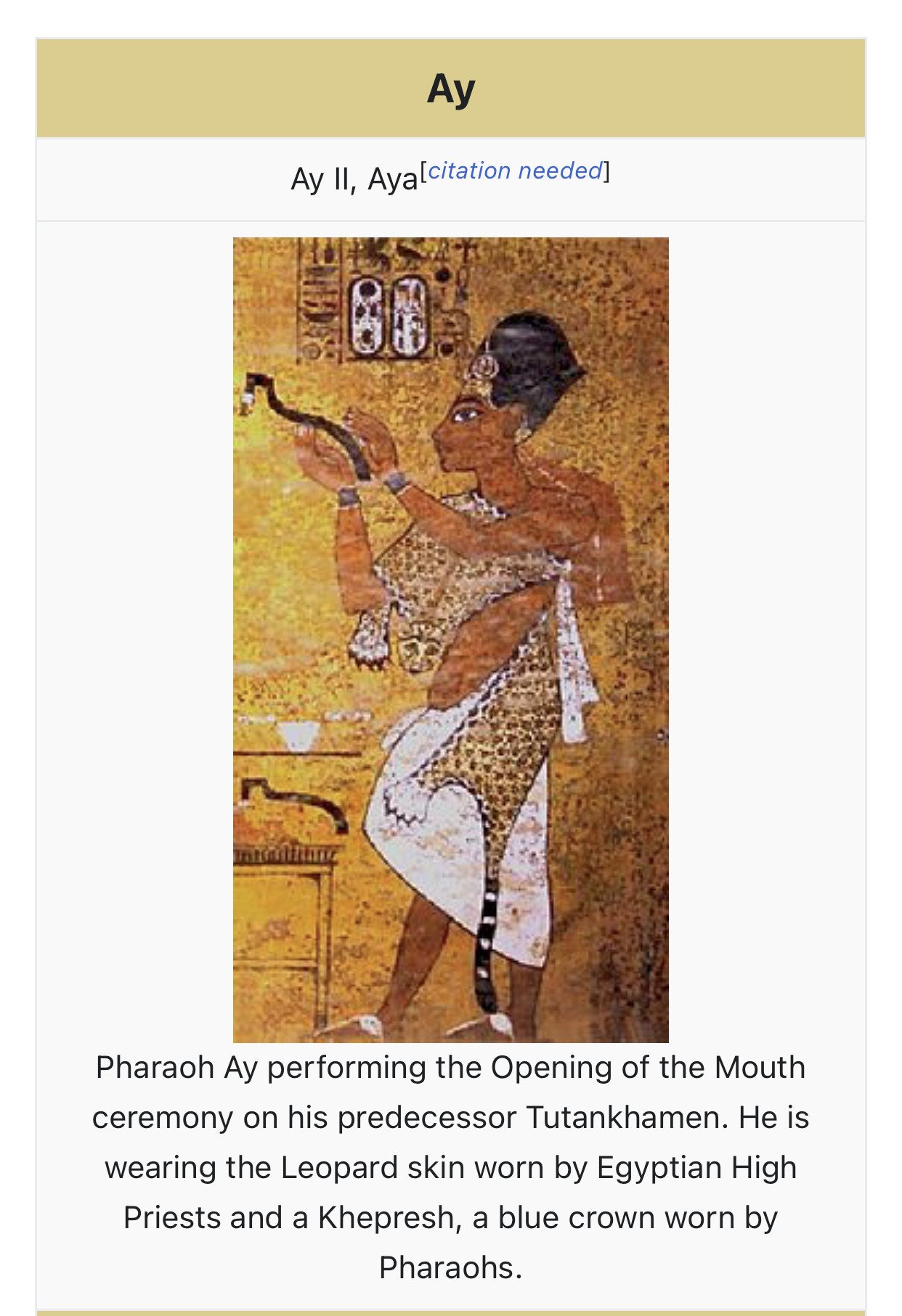The Mac
@TheMac
29 June, 05:11
Sargon of Akkad (/ˈsɑːrɡɒn/; Akkadian: 𒊬𒊒𒄀 Šar-ru-gi),[3] also known as Sargon the Great,[4] was the first ruler of the Akkadian Empire, known for his conquests of the Sumerian city-states in the 24th to 23rd centuries BC.[2] He is sometimes identified as the first person in recorded history to rule over an empire.
Understanding of the Akkadian Empire continues to be hampered by the fact that its capital Akkad has not yet been located, despite numerous attempts.[17][18] Precise dating of archaeological sites is hindered by the fact that there are no clear distinctions between artifact assemblages thought to stem from the preceding Early Dynastic period, and those thought to be Akkadian. Likewise, material that is thought to be Akkadian continues to be in use into the Ur III period.
Understanding of the Akkadian Empire continues to be hampered by the fact that its capital Akkad has not yet been located, despite numerous attempts.[17][18] Precise dating of archaeological sites is hindered by the fact that there are no clear distinctions between artifact assemblages thought to stem from the preceding Early Dynastic period, and those thought to be Akkadian. Likewise, material that is thought to be Akkadian continues to be in use into the Ur III period.
Notice: Undefined index: tg1tga_access in /home/admin/www/anonup.com/themes/default/apps/timeline/post.phtml on line 396
vernon nielsen
@VernonNielsen
29 June, 05:33
In response The Mac to his Publication
Sargon was found in reed basket and raised with the high priestess, He introduced semitic cuneiform, his rule was besought by internal uprisings until the cities of the plain finally fell under his grandson. And the kazars were born as they fleed from the plains.
Notice: Undefined index: tg1tga_access in /home/admin/www/anonup.com/themes/default/apps/timeline/post.phtml on line 396
The Mac
@TheMac
29 June, 05:38
In response vernon nielsen to his Publication
The ark of bulrushes was a container which, according to the episode known as the finding of Moses in the biblical Book of Exodus, carried the infant Moses.
The ark, containing the three-month-old baby Moses, was placed in reeds by the river bank[1] (presumably the Nile) to protect him from the Egyptian mandate to drown every male Hebrew child,[2] and discovered there by Pharaoh's daughter.
The ark, containing the three-month-old baby Moses, was placed in reeds by the river bank[1] (presumably the Nile) to protect him from the Egyptian mandate to drown every male Hebrew child,[2] and discovered there by Pharaoh's daughter.
Notice: Undefined index: tg1tga_access in /home/admin/www/anonup.com/themes/default/apps/timeline/post.phtml on line 396
The Mac
@TheMac
29 June, 05:41
In response The Mac to his Publication
Osarseph /ˈoʊzərˌsɛf/ or Osarsiph /ˈoʊzərˌsɪf/ (Koinē Greek: Ὀσαρσίφ) is a legendary figure of Ancient Egypt who has been equated with Moses. His story was recounted by the Ptolemaic Egyptian historian Manetho in his Aegyptiaca (first half of the 3rd century BC); Manetho's work is lost, but the 1st century AD Jewish historian Josephus quotes extensively from it.
The story depicts Osarseph as a renegade Egyptian priest who leads an army of lepers and other unclean people against a pharaoh named Amenophis. The pharaoh is driven out of the country and the leper-army, in alliance with the Hyksos (whose story is also told by Manetho) ravage Egypt, committing many sacrileges against the gods, before Amenophis returns and expels them. Towards the end of the story Osarseph changes his name to Moses.[1]
The story depicts Osarseph as a renegade Egyptian priest who leads an army of lepers and other unclean people against a pharaoh named Amenophis. The pharaoh is driven out of the country and the leper-army, in alliance with the Hyksos (whose story is also told by Manetho) ravage Egypt, committing many sacrileges against the gods, before Amenophis returns and expels them. Towards the end of the story Osarseph changes his name to Moses.[1]
Notice: Undefined index: tg1tga_access in /home/admin/www/anonup.com/themes/default/apps/timeline/post.phtml on line 396
The Mac
@TheMac
29 June, 05:42
In response The Mac to his Publication
Joseph is a common masculine given name, derived from the Hebrew Yosef.
Notice: Undefined index: tg1tga_access in /home/admin/www/anonup.com/themes/default/apps/timeline/post.phtml on line 396
The Mac
@TheMac
29 June, 05:43
In response The Mac to his Publication
Journalist Ahmed Osman in his book Stranger in the Valley of the Kings has suggested an identification between Joseph, the ancient Hebrew patriarch who led the tribe of Israel into Egypt during a famine, and Yuya. [25] This theory has not been accepted in mainstream Egyptology.
Notice: Undefined index: tg1tga_access in /home/admin/www/anonup.com/themes/default/apps/timeline/post.phtml on line 396
The Mac
@TheMac
29 June, 05:44
In response The Mac to his Publication
Yuya (sometimes Iouiya,[1] or Yuaa,[2] also known as Yaa, Ya, Yiya, Yayi, Yu, Yuyu, Yaya, Yiay, Yia, and Yuy)[3] was a powerful ancient Egyptian courtier during the Eighteenth Dynasty of Egypt (circa 1390 BC). He was married to Tjuyu, an Egyptian noblewoman associated with the royal family, who held high offices in the governmental and religious hierarchies. Their daughter, Tiye, became the Great Royal Wife of Amenhotep III.[4] Yuya and Tjuyu are known to have had a son named Anen, who carried the titles "Chancellor of Lower Egypt", "Second Prophet of Amun","sm-priest of Heliopolis, and "Divine Father"
Notice: Undefined index: tg1tga_access in /home/admin/www/anonup.com/themes/default/apps/timeline/post.phtml on line 396
The Mac
@TheMac
29 June, 05:46
In response The Mac to his Publication
He was the son of Yuya and Tjuyu and the brother of Queen Tiye, the wife of Pharaoh Amenhotep III. Under the rule of his brother-in-law, Anen became the Chancellor of Lower Egypt, Second Prophet of Amun, and sem-priest of Heliopolis, and acquired the title Divine Father.[2
Notice: Undefined index: tg1tga_access in /home/admin/www/anonup.com/themes/default/apps/timeline/post.phtml on line 396
The Mac
@TheMac
29 June, 05:47
In response The Mac to his Publication
Notice: Undefined index: tg1tga_access in /home/admin/www/anonup.com/themes/default/apps/timeline/post.phtml on line 396
The Mac
@TheMac
29 June, 05:48
In response The Mac to his Publication
He was the son of Yuya and Tjuyu and the brother of Queen Tiye, the wife of Pharaoh Amenhotep III. Under the rule of his brother-in-law, Anen became the Chancellor of Lower Egypt, Second Prophet of Amun, and sem-priest of Heliopolis, and acquired the title Divine Father.
CAIRO, Egypt — An archaeologist said Sunday that Maia, Egyptian pharaoh Tutankhamun’s wet nurse, may have actually been his sister Meritaten, reviving speculation about the identity of the mother of the boy king.
CAIRO, Egypt — An archaeologist said Sunday that Maia, Egyptian pharaoh Tutankhamun’s wet nurse, may have actually been his sister Meritaten, reviving speculation about the identity of the mother of the boy king.
Notice: Undefined index: tg1tga_access in /home/admin/www/anonup.com/themes/default/apps/timeline/post.phtml on line 396
The Mac
@TheMac
29 June, 05:50
In response The Mac to his Publication
MERITATEN?
Notice: Undefined index: tg1tga_access in /home/admin/www/anonup.com/themes/default/apps/timeline/post.phtml on line 396
The Mac
@TheMac
29 June, 05:52
In response The Mac to his Publication
Notice: Undefined index: tg1tga_access in /home/admin/www/anonup.com/themes/default/apps/timeline/post.phtml on line 396
The Mac
@TheMac
29 June, 05:55
In response The Mac to his Publication
Notice: Undefined index: tg1tga_access in /home/admin/www/anonup.com/themes/default/apps/timeline/post.phtml on line 396
The Mac
@TheMac
29 June, 05:57
In response The Mac to his Publication
Which Egyptian pharaoh had red hair?
Ramesses II had red hair, and there were ancient Egyptians with blond hair too.
Ramesses II had red hair, and there were ancient Egyptians with blond hair too.
Notice: Undefined index: tg1tga_access in /home/admin/www/anonup.com/themes/default/apps/timeline/post.phtml on line 396
Only people mentioned by TheMac in this post can reply
The Mac
@TheMac
29 June, 06:01
In response The Mac to his Publication
Notice: Undefined index: tg1tga_access in /home/admin/www/anonup.com/themes/default/apps/timeline/post.phtml on line 396
The Mac
@TheMac
29 June, 06:03
In response The Mac to his Publication
The name Hittites is taken from the biblical Hebrew Ḥitti (gentilic), plural Ḥittim, ... 11:41); Solomon's Hittite wives (I Kings 11:1) and the horses sent by him to "all the ...
Notice: Undefined index: tg1tga_access in /home/admin/www/anonup.com/themes/default/apps/timeline/post.phtml on line 396

